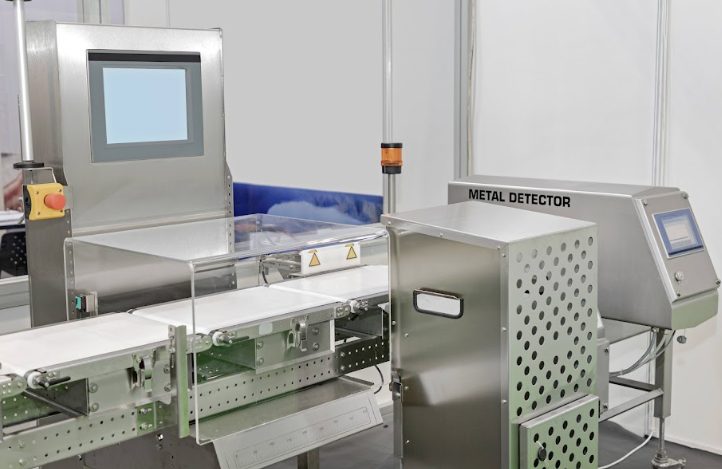
@ShahidNShah


Providing high-quality food service in hospitals is crucial for patient satisfaction, health outcomes, and operational efficiency. One of the key ways to enhance these operations is by adopting advanced technologies that streamline processes and improve accuracy. Among these, checkweigher technology stands out as an effective tool for ensuring portion control, minimizing waste, and maintaining compliance with food safety standards.
This article explores how checkweighers can transform food service in hospital settings.
In hospital food service, consistency in portion sizes is essential. Patients rely on meals tailored to specific dietary requirements, and accurate portioning ensures they receive the correct nutrients. Checkweigher technology provides a reliable solution for measuring portion sizes with precision. By integrating these machines into the food preparation process, hospitals can:
Selecting the right checkweigher is essential for ensuring consistency and reliability. Choosing a food checkweigher requires evaluating models that offer precise weight measurement and customizable settings to meet patient dietary needs.
Food waste is a significant challenge in hospital kitchens. Over-portioning leads to unnecessary waste while under-portioning can result in dissatisfied patients or staff complaints. Checkweighers address this issue by ensuring every meal component meets the exact weight specifications. This precision helps hospitals:
For instance, when preparing meals in bulk, a checkweigher can quickly assess whether ingredients are being used efficiently, helping avoid costly overuse. Over time, this approach also reduces the need for frequent restocking, lowering procurement expenses.
Hospitals must adhere to strict food safety regulations to protect patients. Checkweighers contribute to compliance efforts by monitoring food production processes. These devices can:
As an example, during meal packaging, a checkweigher can alert staff to potential issues, such as underfilled containers or foreign object contamination, safeguarding patients from potential health risks. Consistent documentation also simplifies audits, reducing the administrative burden on hospital management.
In high-demand environments like hospital kitchens, efficiency is critical. Checkweighers integrate seamlessly into food service operations, reducing manual labor and speeding up production. Key benefits include:
For instance, a checkweigher on a conveyor belt can evaluate hundreds of meal trays per hour, ensuring timely delivery without compromising quality. This level of automation reduces bottlenecks, enabling kitchen teams to handle large volumes of orders with ease.
Many hospitals are striving to adopt sustainable practices, and reducing food waste is a major component of these efforts. By leveraging checkweigher technology, hospitals can align their food service operations with broader environmental goals. Benefits include:
For example, a hospital that integrates checkweighers into its kitchen processes may see a noticeable decrease in discarded food, contributing to sustainability targets while improving operational efficiency. Furthermore, this practice supports community initiatives focused on environmental conservation, enhancing the hospital’s reputation.
Adopting checkweigher technology requires careful planning to maximize its benefits. Key considerations include:

By addressing these factors, hospitals can create a seamless transition to more advanced food service operations. Collaboration with technology providers can also help customize solutions to meet the unique needs of hospital kitchens.
Checkweigher technology offers a practical solution for improving food service operations in hospitals. By ensuring portion accuracy, reducing waste, maintaining compliance, and streamlining workflows, these systems enhance both patient satisfaction and operational efficiency. As hospitals continue to seek innovative ways to improve their services, integrating checkweighers can lead to measurable benefits for patients, staff, and the environment alike. With thoughtful implementation, this technology can play a vital role in elevating the standards of hospital food service. Furthermore, its contribution to sustainability goals and cost management makes it an invaluable investment for modern healthcare facilities.

The integration of artificial intelligence (AI) and robotics is transforming cosmetic surgery, creating new opportunities for safer procedures, personalized care, and innovative treatments. As these …
Posted Dec 11, 2024 Artificial Intelligence Robotic Surgery
Connecting innovation decision makers to authoritative information, institutions, people and insights.
Medigy accurately delivers healthcare and technology information, news and insight from around the world.
Medigy surfaces the world's best crowdsourced health tech offerings with social interactions and peer reviews.
© 2025 Netspective Foundation, Inc. All Rights Reserved.
Built on Apr 21, 2025 at 1:14pm